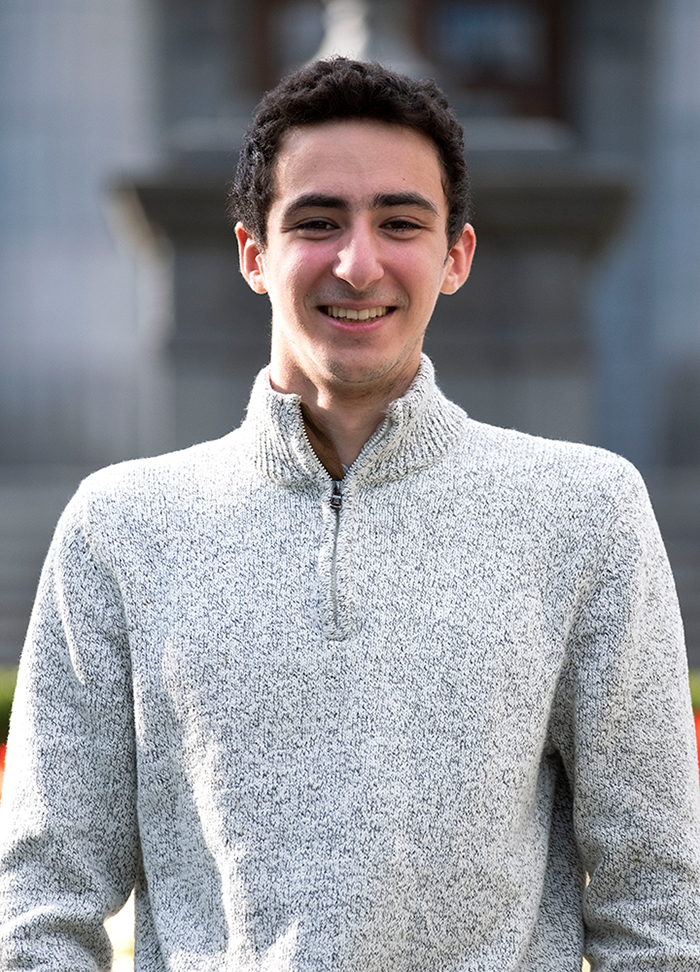In an Oct. 25 email, the Students’ Society of McGill University (SSMU) argued that its new Divestment policy demonstrates “leadership” in “human rights, social justice, and environmental protection.” Mostly, yes. It is important to protect Indigenous peoples and divest from fossil fuels. But the Divest Coalition weaponizes this moral license to target Israel and shut down legitimate criticism from Jewish students as racism.
It is deceitful to create a false equivalency between a Middle East conflict and Canadian history, let alone climate change. Many Jewish students pointed this out at the original Divestment policy debate, cautioning against loaded terms like “Apartheid” or “stolen land.” These objections were dismissed as “undemocratic” and “cynical.” Nevertheless, one Jewish representative asked to debate the policy clause-by-clause—which would mean evaluating terms like “apartheid” and explaining exactly how problematic framing can produce antisemitism on campus—but SSMU officers claimed this would violate its equity policies: the proposal could only be served as a wedge of “Divestment” cheese because any nuanced discussion of the underlying issues would go against the campaign’s “spirit.”
This is a dangerous precedent. Social justice is not what a vocal minority of anti-Zionist students say it is: it is what is best for everyone. McGill’s Divest Coalition is possessed with a misguided anti-Israel zeitgeist, disseminating a litany of distortions and self-righteous quasi-legal pronouncements.
The untouchable anti-Israel clauses cite Human Rights Watch (HRW). HRW is not a legal authority: it is an advocacy group alleging that Israeli policies approach apartheid criteria. It is not just any human rights watchdog either: its founder, Joe Stork, has defended terrorism and called for Israel’s destruction, while other staff are affiliated with Electronic Intifadah, an outlet known for spreading falsehoods. Stork’s record is particularly damning, as he attended former Iraqi dictator Saddam Hussein’s 1976 “Zionism is Racism” conference and suggested that Arab countries should invade Israel again. With this anti-Zionist roster, students at a top-tier university should know better than to believe HRW’s claims of “even-handedness,” “accuracy,” and objectivity.
Even if HRW were a legitimate, third-party investigator, their “apartheid” claims are not credible. The analogy pinpoints Israel’s 1950 Law of Return—the basis of Jews’ birthright citizenship—and the 2016 Nation-State Law. But this type of legislation is not unique to Israel, and HRW is hard-pressed to prove that it is discriminatory. United Nations resolutions permit ethnic naturalization requirements, especially as an “affirmative action” to rectify historical injustice. One could talk about the Holocaust or Medieval Jewish disenfranchisement, but in terms of immigration to Palestine, Jews faced Ottoman discrimination, not to mention British Mandate-era anti-Jewish restrictions.
Arab-Israelis and Jews have equal rights, but Palestinians living in the West Bank or Gaza are not citizens. International treaties require Israel to recognize them as subjects of democratically elected representative bodies like the Palestinian Authority (PA). This means that Israel cannot enfranchise them, and decades of terrorism have led Israel to take measures to protect citizens within its borders. The PA bears great responsibility for this worsening problem. Even though terrorism is a perennial obstacle to a lasting peace settlement, the elected Fatah party diverts PA funding to terrorism and incites violence. Although many Arab communities experience water shortages, contrary to claims that Israel withholds water from Palestinians, many are in fact attached to Israel’s water distribution network. Those that did not join were discouraged from doing so as it would condone Israel’s existence.
Using inflammatory terms like “apartheid” distracts from this context. There has not been a solution of any kind yet because Palestinian liberation organizations refused to negotiate with Israel. Neighboring countries like Syria, Jordan, and Egypt, who illegally invaded Israel in 1948, have made the refugee situation even worse by not enfranchising Palestinians who abandoned their property—often at the Arab armies’ behest—as doing so would legitimize the Jewish State.
Next time SSMU tries to show leadership in human rights, they should ask why hundreds of thousands of Jewish refugees were ethnically cleansed from Arab countries following the establishment of Israel—an atrocity which has not yet been recognized by the UN, and a crucial, if often ignored, factor in the events of 1947-8. They should also talk to McGill legal experts before making misleading claims that Israel’s 2014 incursion into Gaza was an “atrocity” involving “deliberate attacks” against civilians. The Israeli Defense Forces exceeded the requirements for the Laws of Armed Conflict and investigated war crimes allegations, discrediting most of them. Similar allegations have been refuted in the past.
Although the Divest Coalition acknowledges that it only consulted “political and cultural student organizations” that are “active in human rights,” they are not international law experts, and SSMU cannot endorse Divest’s legal conclusions without expert advice. One can reasonably deplore the violence in Gaza, but it is dishonest to baselessly excoriate the IDF for “massacring” civilians. It is a travesty that so many civilians were killed in the fighting, but in many cases, Hamas terrorists deliberately used them as human shields.
Apparently pointing all of this out goes “against the spirit of divestment.” Be that as it may, this background is important. An honest reading of history shows that anti-Israel students are attaching the Palestinian cause to unrelated issues like climate change to counterfeit social justice, brandishing hollow scepters of moral authority to demonize Zionism.
A slightly edited version of this article was published in The Suburban, Quebec’s largest English-speaking newspaper. Also see 2020-2021 McGill CAMERA Fellow Jordana Schiff’s article from last year addressing some of these issues.
Jonah Fried is a 2021-2022 CAMERA Fellow at McGill University.


